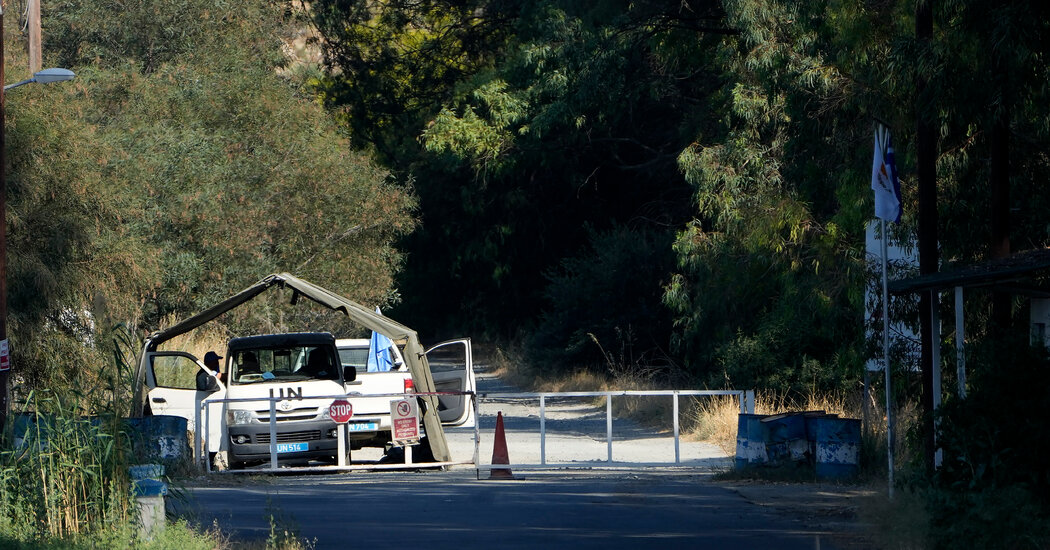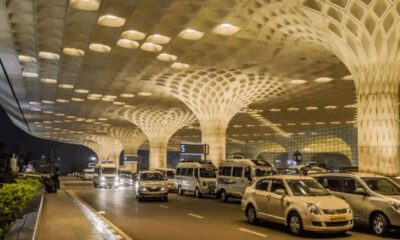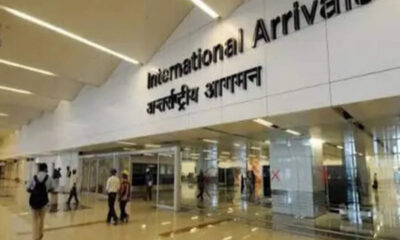Breaking News
Migrants Seeking Safety in Cyprus Are Stuck in U.N. Buffer Zone

Approximately 30 asylum seekers are currently stranded in the United Nations-controlled buffer zone between the Turkish-occupied north of Cyprus and the internationally recognized south. This situation has arisen due to a crackdown by Cypriot authorities on undocumented migration, particularly following an increase in Syrians arriving from Lebanon.
The group consists of 13 individuals from Syria and 14 from various other regions in the Middle East, Africa, and Asia. They are scattered across different locations in the 112-mile buffer zone that stretches across Cyprus. Crossing back into the occupied north would result in deportation, as the area lacks the necessary infrastructure for asylum procedures. Additionally, trespassing into the buffer zone from the north would be considered a crime and likely lead to deportation.
President Nikos Christodoulides stated that while the authorities would provide humanitarian aid to migrants in the buffer zone, they would not permit entry into the south to prevent the establishment of a new illegal migration route. Cyprus, as an EU member, is responsible for regulating entry into the bloc and is committed to supervising the buffer zone effectively.
Despite the government’s stance, an official from the European Commission emphasized that member states must allow asylum requests, even within the buffer zone. The migrants arrived in two separate groups over the past few weeks, with concerns raised about their well-being in the face of sweltering temperatures exceeding 100 degrees Fahrenheit.
Emilia Strovolidou, a UNHCR spokeswoman, highlighted the challenges faced by the migrants and urged Cypriot authorities to consider granting them asylum given their vulnerable situation.
The article also touches upon the broader context of migration trends, economic hardships in Lebanon, and the impact of conflicts on migration flows. It underscores the complex challenges faced by migrants seeking safety and better opportunities, as well as the need for coordinated international responses.
The situation in Cyprus reflects broader migration issues in the region and the complexities of managing asylum applications and border security. It highlights the humanitarian concerns and legal obligations of countries towards asylum seekers, particularly in politically sensitive and geographically divided areas.
-

 Destination7 months ago
Destination7 months agoSingapore Airlines CEO set to join board of Air India, BA News, BA
-

 Breaking News8 months ago
Breaking News8 months agoCroatia to reintroduce compulsory military draft as regional tensions soar
-

 Tech News11 months ago
Tech News11 months agoBangladeshi police agents accused of selling citizens’ personal information on Telegram
-

 Breaking News8 months ago
Breaking News8 months agoBangladesh crisis: Refaat Ahmed sworn in as Bangladesh’s new chief justice
-

 Guides & Tips9 months ago
Guides & Tips9 months agoHave Unlimited Korean Food at MANY Unlimited Topokki!
-

 Gaming8 months ago
Gaming8 months agoThe Criterion Collection announces November 2024 releases, Seven Samurai 4K and more
-

 Toys10 months ago
Toys10 months ago15 of the Best Trike & Tricycles Mums Recommend
-

 Tech News9 months ago
Tech News9 months agoSoccer team’s drone at center of Paris Olympics spying scandal
























